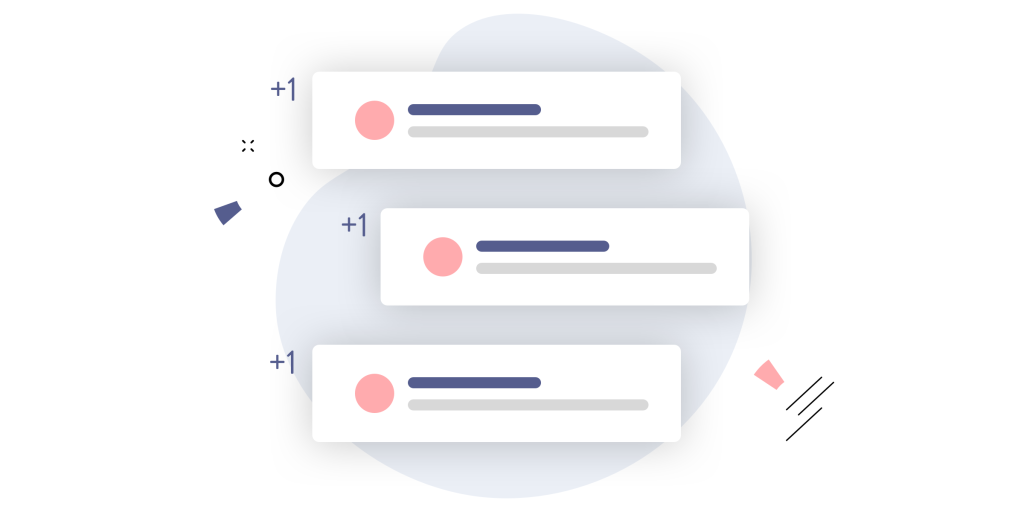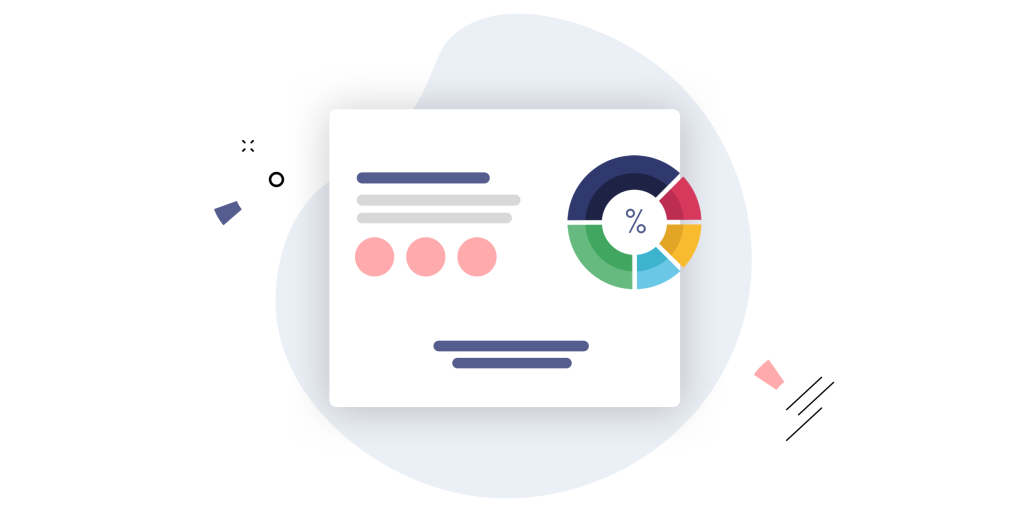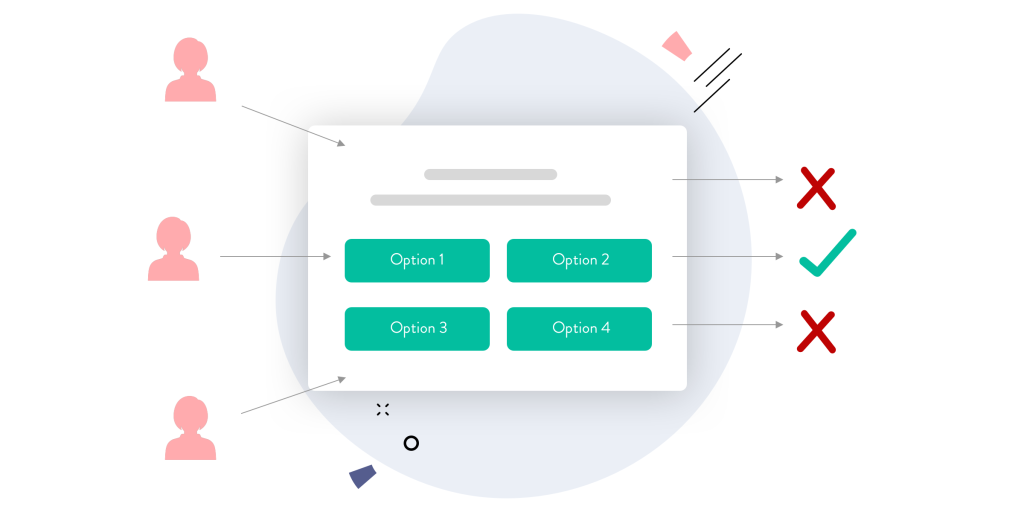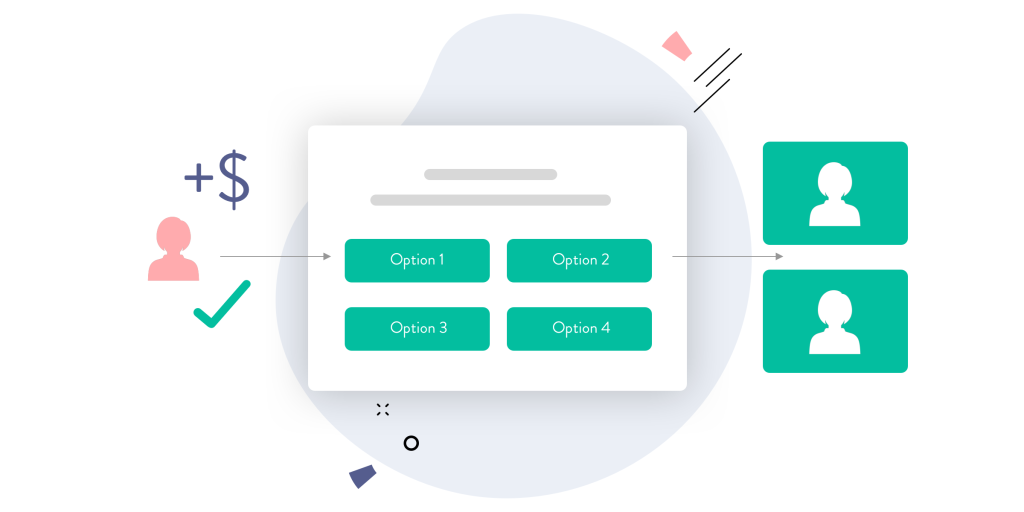6 types of quiz you should be using in your business


When you think about quiz marketing, what comes to mind?
Is it simply a way to generate leads? Or is there more to it?
In reality, there are many reasons to use quizzes and scorecards within your business and whatever goal you have, there is usually a quiz that can help you achieve it.
In this article, we’ll break down 6 different quiz types and tell you when you might use them.
Quizzes are not just for lead-generation
Lead generation is important but it’s not the only goal. Businesses also have to:
- Attract their ideal customers
- Create valuable content that educates their audience
- Deliver exceptional service
- Learn more about their audience and how they can serve them
- Create relevant products and services
- And so much more
For you to do this, you need to think bigger that a “lead generation tool”.
This is exactly why we wrote this article. Let’s get into it.
1. Lead generation quiz to attract new leads
As you already know, lead generation is important. The more leads you have, the more potential customers you can get.
Using a quiz as your main lead magnet will help you build a list of warm prospects that are eager to hear from you.

You might have used traditional lead magnets before such as free PDFs, training videos or webinars. These days, people often ignore these types of lead magnet because they are overused and feel impersonal.
Why use a quiz for lead generation?
Quizzes work better than typical lead magnets because they are fun and different. Not only that, as humans, we like to be challenged and scored. It’s in our nature.
We all like to see how well we are performing and that intrigue keeps us engaged. This is why quizzes work so well when trying to attract new leads.
Tailored messaging
Another reason for using a quiz as your main lead magnet is that you can segment your leads automatically based on how they score in your quiz. This means you can send different emails to different people so your messaging is super relevant to them.
Examples of lead generation quizzes
- How Healthy are you? Find out by answering these 9 quick questions
- What kind of fiction writer are you? Take the 60 second quiz to find out
- What car should you buy? Answer these 7 questions to find out
Lead generation quizzes are fun and easy and they convert way more than standard lead magnets.
Top tips for Lead generation quizzes
- Keep it short so more people complete it
- Create a good landing page that showcases the benefits
- Talk about your quiz all over social media to spread the word
Read more about lead magnet quizzes here.
2. Assessment quiz to educate your audience
If you want something a little more valuable for your audience, then an assessment quiz might be perfect. An assessment quiz is much more than a tool for generating lots of leads.
It allows your audience to diagnose certain problems and tells them how they could improve. Although this type of quiz is super valuable, by providing an “assessment tool” on your website it helps increase your authority and expertise around the topic.

For instance. If you are a personal trainer you could offer a “Fitness Health Check” quiz. It would allow your audience to asses how good or bad their health is before hiring anyone. By offering this for free, you provide value whilts building instant trust and credibility.
Examples or an assessment quiz
How good is your Brand – Take the Brand Assessment Quiz and get a full report
Get your LinkedIn Health Check – Learn what you’re doing right and what you need to improve
The Diet Diagnostic Report – Answer these 20 questions and get a detailed report of where you are and which areas you can improve
Best practises for assessment quizzes
- Assessment tools can be longer than basic lead generation quizzes. 20-40 questions is typical for a more detailed report
- Use a nice mixture of question to keep people engaged throughout the whole quiz
- Make sure the results page is value packed with content related to their score
- Offer some quick wins based on their score and then can improve it
3. An event quiz to learn about your attendees
Do you run online or offline events? You might want to consider adding a “Pre-event quiz”. A pre-event quiz acts like a mini survey so you can learn more about your audience before they attend a live event.
You can ask people who register for all your events to take a short quiz that will help you understand more about your attendees and what they are struggling with.

As soon as someone registers or buys a ticket for an event they are excited and eager. This is where you would redirect them straight to this quiz to “complete their registration”
Getting this information upfront will allow you to understand more about your audience and what they might need from you. The answers people give can act as super valuable data that can inform and guide your entire event and the content you share.
Examples of an event quiz
You’re registered – Answer these 3 questions so we learn more about your business before the workshop
To complete your registration answer these 4 simple questions (it takes 30 seconds)
Workshop Homework (Don’t worry, it’s easy) – Answer these 5 yes or no questions before the workshop
Top tips for when using an event quiz
- Shorter pre-event quizzes work best (1-5 questions)
- Redirect your lead straight away after they register for the event
- Remind people to take the quiz a few times before they event
4. A paid quiz that offers more value for a fee
Have you ever considered charging a fee for people to take your quiz? You might want to consider it.
Although most people use quizzes for lead generation, you could certainly create a paid quiz if it’s valuable enough for your audience.

Some quiz software like scoreapp allows you to give super specific and tailored information to your audience. This content could really help them improve their situation which is why you could charge a fee for it.
There is a difference between a free, “lead gen quiz” and a “paid assessment tool” but the software you use is exactly the same.
Free quiz vs paid quiz
A free quiz would usually be lighter and easier to answer. 10-20 questions is about average when giving people a score and some guidance on how they can improve it. The main purpose is to get as many people to complete the quiz as possible.
A paid quiz or assessment tool is totally different. A paid quiz would generally be longer and more detailed. Perhaps 20 – 50 questions that are more specific and include more context. This will allow you to create more in-depth, tailored content on the results page. You can also create a follow up email sequence where you deliver more premium insights and guidance.
The goal of a paid quiz is to provide real value for a small fee. However, you may find that when someone chooses to pay for an assessment tool like this, they are much more likely to buy your premium products or services. People often like to spend a little money to test you out before investing more money.
Examples of paid or premium quiz
- Get your diet plan for £29. Answer 30 questions and get a personalised report and a meal plan specifically for you.
- Get your personalised wedding plan for £50. Answer 40 questions and you’ll get access to a step by step guide on how to save up to £5K on wedding expenses.
- Get your sales call scripts for £10 – Answer 50 questions and we’ll send you your sales ability score along with the exact scripts that will help your close more deals faster
Top tips when using a paid quiz
- Paid quizzes are usually longer and more detailed. 30-60 questions is typical.
- You’ll want to include some extra bonuses (like we did above) that are valuable and relevant to your audience
- You’ll need to include more detailed information about the quiz and extras on your landing page. When you’re charging a fee, customers always need more information
When you charge someone a fee for a quiz or an assessment, you can guarantee they will take it seriously. They will answer the questions properly and they will listen to what you say. This sometimes isn’t the case with a free quiz.
5. A pre-qualification quiz to help filter your leads
Another interesting use for a quiz is to pre-qualify your leads and enquiries before you speak to them.
Ask your leads to take a short quiz that helps you access their needs. This type of quiz works especially well for a service business and coaching businesses as it enables you to see who your leads are before you speak to them.

It also helps you filter out the leads who are not right for you. You’ll be able to see their answers to certain questions and it will help identify who you should and shouldn’t speak to first.
Doesn’t this quiz put a barrier in the way?
Yes, and that’s a good thing.
If a prospect gets in touch and wants a call or meeting to discuss working together, you have no idea if they are the right fit for you or are ready for your services.
Pre-qualification quiz email template
“Thanks so much for getting in touch, we can certainly have a chat with you about your project.
Before we book a call, I’d love for you to take a look at this.
It’s a quick assessment tool that we’ve created that will tell us exactly what areas you’d like us to help you with and what you’d like to achieve.
It will only take you 60 seconds but we’ve just found that when clients use this tool before our call, it makes for a much more productive chat.
Here’s the link – You also get a personalised report for free which is really helpful.
As soon as you’ve done that, we’ll get you booked in”
Top tips when using a pre-qualification quiz
The purpose of a pre-qualification quiz is NOT to generate more leads, the purpose is for you to filter out the good leads vs the bad leads.
- Ask about their goals and what they want to achieve
- Ask about their current situation and where they are right now
- Ask about their budget and what they are willing to invest
The answers to these questions will help you understand who is the right fit for your business and who is not.
6. Onboarding quiz – get the most from working with us
Once a customer or client has started working with you, what do you do next? You could jump straight in and get started on the project or you might schedule a kick-off call to discuss their goals.
Why not use an onboarding quiz to make the process even better?

Onboarding quizzes dramatically improve customer experience and make your customers feel valued from the outset. It shows them that you care about their objectives and results.
Picture this… you have two financial advisors.
The first financial advisor says this…
“Thank you for agreeing to work with us. We have you booked in for a call next week where we can discuss your financial plans etc. Looking forward to talking then”
The second Financial Advisor says this…
“Thank you for agreeing to work with us. Before our call next week, I’d like you to complete this short questionnaire. It will really help us to understand your main goals and objectives. It will only take you 3 minutes but it will give us a lot more information before we speak on the phone next week. The more we know about you, the better we can help”
As you can see, the second option feels so much more considerate. It feels like they genuinely care about helping their customers. This approach will also help prevent buyers remorse and get your customer excited to speak to you.
Examples of Onboarding Quizzes
- Kick Off Quiz – Let’s get to know you before we chat. Answer these 4 questions so we can have a super productive Kick off call.
- The Success Planner – Where are you right now and where do you want to be? Answer these 5 questions so we both know what success looks like to you
- Project Prep Kit – Before we have our kick-off call, we want to get to know you. Click the button below and answer 5 questions. We’ll also send you some helpful resources.
Top tips when using Onboarding quiz
- Send your customer directly to the quiz after they have purchased your product (or booked a call) as this is when they are the most engaged
- You could include a short video to explain why it’s important
- Choose questions that will excite your customer e.g. talk about growth and success
- Ask questions that will help you understand them better so you can deliver an excellent experience
When to use these different quiz types
As you can see, there are many different ways that you can use quizzes within your business.
Your prospects and customers are all different. They are at various stages of the buying journey and their goals are all unique. This is exactly why you need multiple quizzes running at the same time.
You don’t have to use every single quiz type on this list but at least now you know where they could be used and for what reason.





